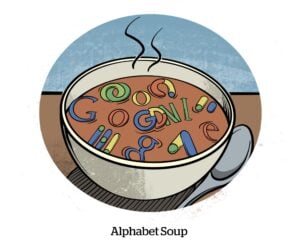Search back and remember. I know it feels like a million years, but it’s actually just been a couple of weeks since US District Court Judge Leonie Brinkema ruled that Google has been operating an illegal monopoly in the publisher ad server and ad exchange markets.
The 80-year-old Judge Brinkema could be a new figure of heroic revolution and independence to many programmatic industry veterans, including the entrepreneurs who felt their businesses were unfairly hamstrung by Google’s dominance and the publisher and ad tech operators who resented their own reliance on Google’s platform.
AdExchanger spoke to a number of programmatic leaders who testified in the trial last September. These convos gave them room to vent and explain why they participated in (and advocated for) the DOJ’s suit against Google. They also let us know what remedies they believe would be appropriate to require of Google moving forward.
Here are the programmatic leaders we chatted with:
Brian O’Kelley, co-founder and CEO, Scope3, and co-founder and former CEO, AppNexus
Stephanie Layser, former News Corp. programmatic product leader who testified on behalf of her work with publishers
Andrew Casale, co-founder and CEO, Index Exchange
Jay Friedman, CEO, Goodway Group
Below are their thoughts on the court decision and where the industry goes from here.
AdExchanger: Do you think the decision finding Google was an illegal monopoly was the right one?
LAYSER: The decision was the right one.
Publishers shouldn’t feel stuck with technologies they buy. And the facts all fit the bill of a monopoly, including artificially low prices, lack of innovation and product features that mismatched what [publishers] were asking for.
CASALE: I trust the Court.
Judge Brinkema heard the evidence, evaluated the law and considered the arguments. We believe in the unbiased rule of law – and that’s exactly what was afforded here. Google has the right to appeal, and Index Exchange will continue to put its trust in the process.
FRIEDMAN: The court’s decision appears accurate given the facts in the case.
My job was not to make the case for either side but instead to answer both sides’ questions with facts and expert opinions. I wasn’t hopeful one side or another would win but simply that the law would be respected and followed, which it appears it was.
How did you feel when you first heard the news of the verdict?
O’KELLEY: My immediate reaction was bittersweet.
The team at AppNexus (and Yieldex, who we acquired) built an incredible ad server that was functionally better than DFP/GAM in many respects, but couldn’t win deals in the US. We knew it wasn’t a fair fight, but it’s both vindicating and tragic to see just how impossible it was to beat Google.
LAYSER: I was at work on a silent floor. I squealed, and half the floor turned and stared at me like, what is happening!?
CASALE: I was in an internal meeting, and my phone started buzzing. First a WhatsApp, a text, and then a tsunami. It felt like the ground shifted a little. After everything the industry’s been through, seeing it in black and white was impactful.
What do you think would be appropriate in terms of potential remedies?
O’KELLEY: I would rule that Google cannot preference its own demand in any way on its ad server or exchange.
They need to demonstrate that to independent auditors on an annual basis and provide complete transaction logs, including all bids received, to their clients upon request at no additional cost. Additionally, GAM should not be able to share any data about their transactions, context, audience, demand footprint, etc., with Google that they are not also sharing equally with all other market participants.
Lastly, AdX should not have any preferential treatment within GAM. Any features of GAM that are leveraged by AdX must be available to all other ad exchanges. Similarly, DV360 and other Google products cannot have any preferential access.
CASALE: This verdict validates what many in the industry have felt for years — that the market wasn’t working as it should.
A fair remedy should restore real competition and give the market room to innovate. Based on the ruling, “fair and appropriate” looks like divestiture of one or both of AdX and DFP. The details of that are still to be determined by the court. But, based on the decision, it seems reasonable to expect a result that includes that outcome.
LAYSER: No comment on remedies.
FRIEDMAN: The challenge with the ruling and remedy is that the damages that resulted from the actions found to be in violation of the law are essentially incalculable. And those harmed by those actions will never have the opportunity to recoup those losses in any meaningful way.
As for my advice on a remedy: At a minimum, DFP should be spun out and required to remain independent. DFP should be required to provide equal access to all bidding sources. However, while I don’t believe this is legally viable, no Google product should be allowed to share data with any other. Maps, Chrome, YouTube, Search, DV360, Android – none of its products should be allowed to pass or share data for [advertising] purposes.
How do you feel having participated in the trial?
CASALE: It was a privilege to participate in such a landmark case and, in doing so, to represent Index’s values on the stand.
We see deep alignment between the questions considered in this case and our core ethos of “Transparency and Efficiency.” I am a big believer in true value creation, and in my experience anything that inhibits it will eventually run out of runway.
LAYSER: I truly love publishers. I always have and I always will. I am really proud to fight for their sovereignty and will continue to do so in a post-GAM world.

















